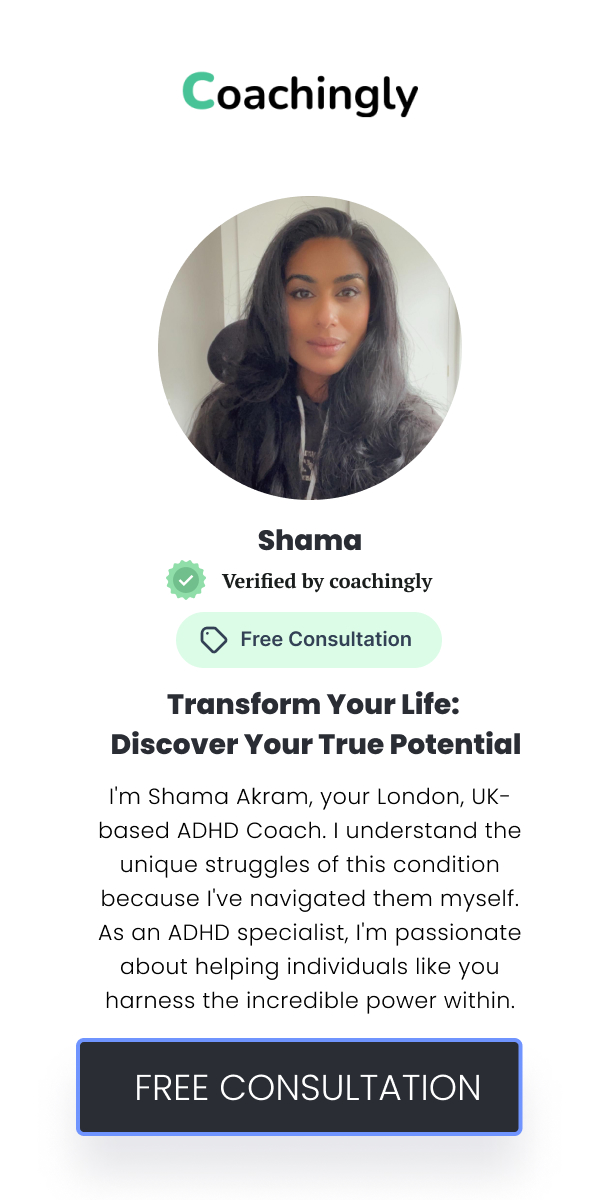
ADHD Medication: Understanding Options and Considerations
![]() Shama Akram
Shama Akram
![]() April 06, 2024
April 06, 2024
ADHD medication plays a crucial role in managing the symptoms of Attention-Deficit/Hyperactivity Disorder (ADHD). It is often a primary treatment option recommended by healthcare professionals alongside behavioural therapy. Medication works by targeting neurotransmitters in the brain to improve focus, impulse control, and attention span. There are primarily two types of medications used to treat ADHD: stimulant and non-stimulant medications. Stimulant medications are the most commonly prescribed drugs for ADHD treatment. They work by increasing the levels of dopamine and norepinephrine in the brain, which helps to regulate attention and behaviour. Examples of stimulant medications include methylphenidate (e.g., Ritalin, Concerta) and amphetamine-based medications (e.g., Adderall, Vyvanse). These medications are known for their fast-acting effects and are often the first-line treatment for ADHD. However, it's essential to consider the potential side effects and risks associated with stimulant medications. These may include decreased appetite, difficulty sleeping, and increased heart rate or blood pressure. Additionally, stimulant medications can be habit-forming if not taken as prescribed. Therefore, healthcare providers carefully monitor their use and adjust dosage accordingly. Non-stimulant medications are an alternative option for individuals who cannot tolerate stimulant medications or do not experience significant improvement with them. These medications work differently in the brain compared to stimulants but can still effectively manage ADHD symptoms. Examples of non-stimulant medications include atomoxetine (Strattera), guanfacine (Intuniv), and clonidine (Kapvay). While non-stimulant medications may have fewer side effects than stimulants, they still carry risks that need to be considered. These may include dizziness, drowsiness, and potential liver function abnormalities with atomoxetine. It's essential for individuals to discuss their medical history and any potential concerns with their healthcare provider before starting any medication regimen. In some cases, healthcare providers may recommend combination therapy, which involves using both stimulant and non-stimulant medications together. This approach can provide comprehensive symptom management for individuals with ADHD who do not respond adequately to one type of medication alone. Combination therapy may also help reduce the dosage of stimulant medication needed, thereby minimizing potential side effects. It's important for individuals receiving ADHD medication to understand that medication management is not a one-size-fits-all approach. Factors such as age, medical history, co-existing conditions, and individual response to medication must be taken into account when determining the most suitable treatment plan. Regular monitoring and communication with healthcare providers are crucial to ensure optimal effectiveness and safety of ADHD medication. While medication plays a significant role in managing ADHD symptoms, it is often not sufficient on its own. This is where ADHD coaching can complement medication management by providing additional support and strategies for coping with ADHD-related challenges. ADHD coaches work with individuals to develop personalised strategies for improving organisational skills, time management, and emotional regulation. Through regular coaching sessions, individuals with ADHD can learn practical techniques for managing their symptoms and achieving their goals. Additionally, ADHD coaches provide accountability and encouragement to help individuals stay on track with their treatment plan. By combining medication with ADHD coaching, individuals can enhance their overall quality of life and achieve greater success in various aspects of their lives. ADHD medication offers valuable options for managing ADHD symptoms, but it's essential to consider the potential benefits, risks, and individual factors when choosing a treatment plan. By working closely with healthcare providers and utilising complementary strategies such as ADHD coaching, individuals with ADHD can effectively manage their symptoms and thrive in their daily lives.Understanding ADHD Medication
Stimulant Medications for ADHD
Non-Stimulant Medications for ADHD
Combination Therapy and Other Considerations
The Role of ADHD Coaching

Recent Articles
How an ADHD Coach Can Help You Unlock Your Potential
Understanding ADHD CoachingADH...
![]() Apr 29, 2024
Apr 29, 2024
5 Ways an ADHD Coach Can Transform Your Life
Understanding the Role of an A...
![]() Apr 28, 2024
Apr 28, 2024
Don't Go It Alone: Why Partnering with an ADHD Coach is a Smart Move
Understanding ADHD CoachingADH...
![]() Mar 31, 2024
Mar 31, 2024
Taming the Time Monster: How an ADHD Coach Can Help You Manage Your Time Effectively
Understanding the Time Challen...
![]() Apr 27, 2024
Apr 27, 2024
From Procrastination to Progress: How an ADHD Coach Can Help You Achieve Your Goals
Understanding Procrastination ...
![]() Apr 25, 2024
Apr 25, 2024
Busy Professionals with ADHD: How an ADHD Coach Can Help You Thrive
Understanding ADHD in Busy Pro...
![]() Apr 26, 2024
Apr 26, 2024
Parents of Children with ADHD: How an ADHD Coach Can Support Your Family
Understanding ADHD in Children...
![]() Apr 24, 2024
Apr 24, 2024
Women and ADHD: How an ADHD Coach Can Empower You
Understanding ADHD in WomenADH...
![]() Apr 23, 2024
Apr 23, 2024
The Unexpected Benefits of Working with an ADHD Coach
Understanding the Role of an A...
![]() Apr 22, 2024
Apr 22, 2024
Investing in Yourself: The ROI of Hiring an ADHD Coach
Understanding the Role of an A...
![]() Apr 21, 2024
Apr 21, 2024
Finding the Right Fit: How to Choose the Perfect ADHD Coach for You
Understanding the Role of an A...
![]() Apr 20, 2024
Apr 20, 2024
Living with ADHD as an Adult: Challenges and Strategies
Understanding Adult ADHDADHD, ...
![]() Apr 19, 2024
Apr 19, 2024
Unlocking Your Productivity Potential: Tools and Apps for Adults with ADHD
Understanding ADHD and Product...
![]() Apr 18, 2024
Apr 18, 2024
The Power of Planning: Using Calendars and Planners Effectively with ADHD
Understanding ADHD and Its Imp...
![]() Apr 17, 2024
Apr 17, 2024
Prioritizing Like a Pro: Techniques for Setting and Achieving Goals with ADHD
Understanding ADHD and Goal Se...
![]() Apr 16, 2024
Apr 16, 2024
Building Self-Esteem with ADHD: Overcoming Negative Self-Talk
Understanding the Impact of AD...
![]() Apr 15, 2024
Apr 15, 2024
Building Healthy Habits: Exercise, Sleep, and Nutrition for Adults with ADHD
Understanding ADHD and its Imp...
![]() Apr 14, 2024
Apr 14, 2024
Developing a Growth Mindset with ADHD: Embracing Challenges
Understanding ADHD and the Gro...
![]() Apr 13, 2024
Apr 13, 2024
Staying Motivated: Strategies for Long-Term Success with ADHD
Understanding ADHD and Motivat...
![]() Apr 12, 2024
Apr 12, 2024
Building Resilience: Overcoming Setbacks and Staying Positive
Understanding ResilienceResili...
![]() Apr 11, 2024
Apr 11, 2024
Finding Your Strengths: Leveraging ADHD Traits for Success
Understanding ADHD TraitsADHD,...
![]() Apr 10, 2024
Apr 10, 2024
The Power of Self-Compassion: Practicing Kindness Towards Yourself
Understanding Self-CompassionS...
![]() Apr 09, 2024
Apr 09, 2024
ADHD and Technology: Using Tech to Your Advantage
Understanding ADHD and its Cha...
![]() Apr 08, 2024
Apr 08, 2024
The Science Behind ADHD: Understanding the Brain
Understanding ADHD as a Neurod...
![]() Apr 07, 2024
Apr 07, 2024
